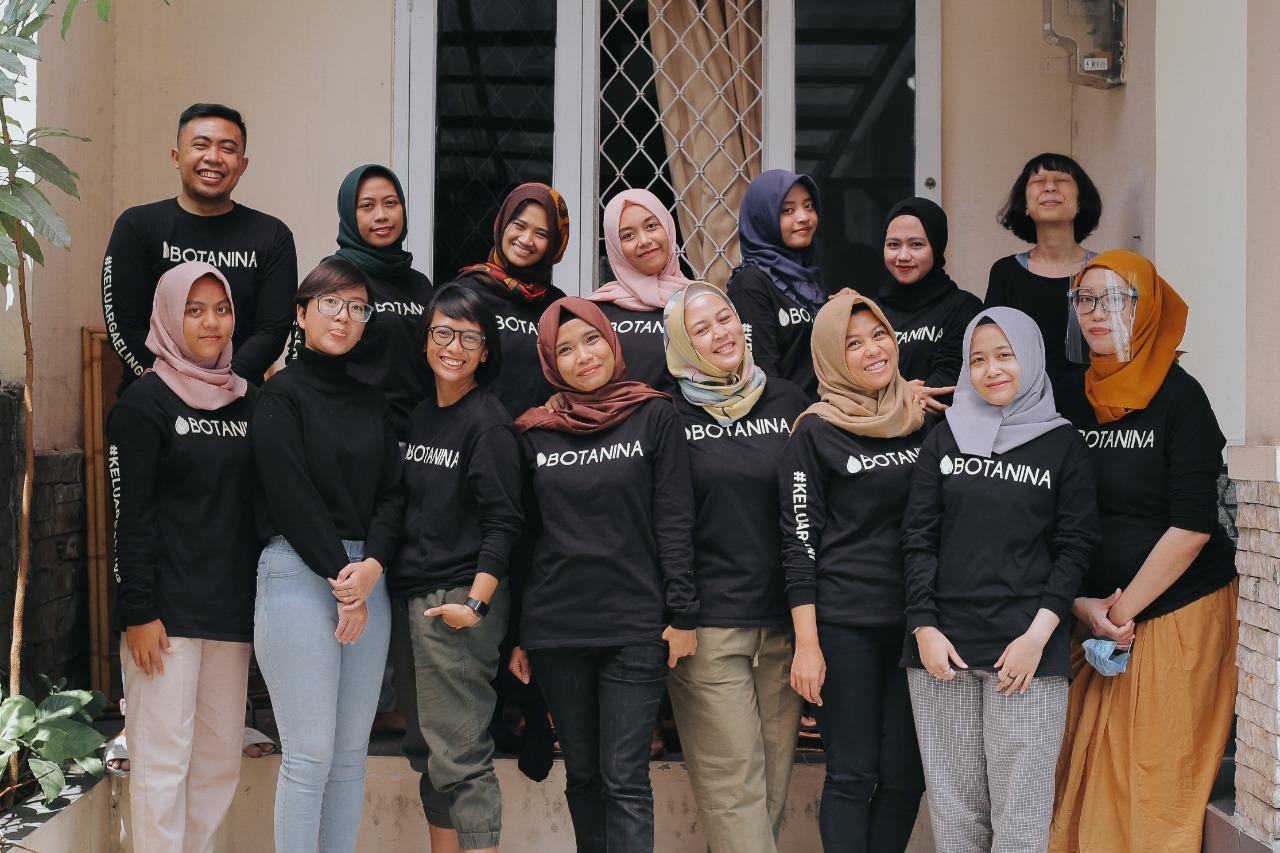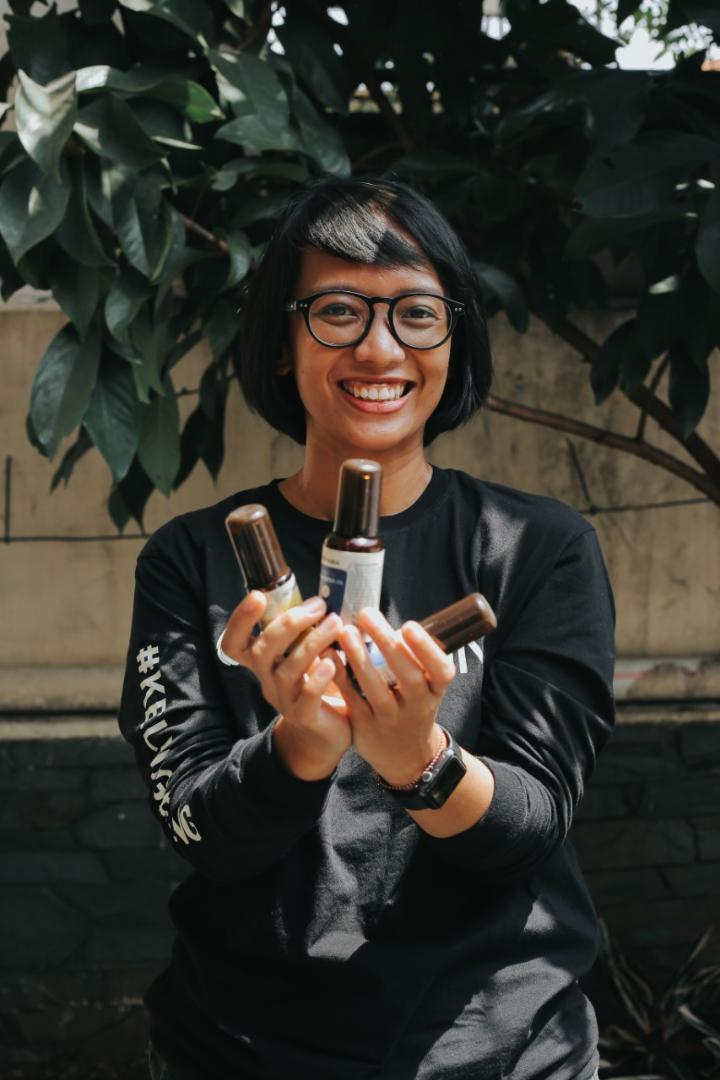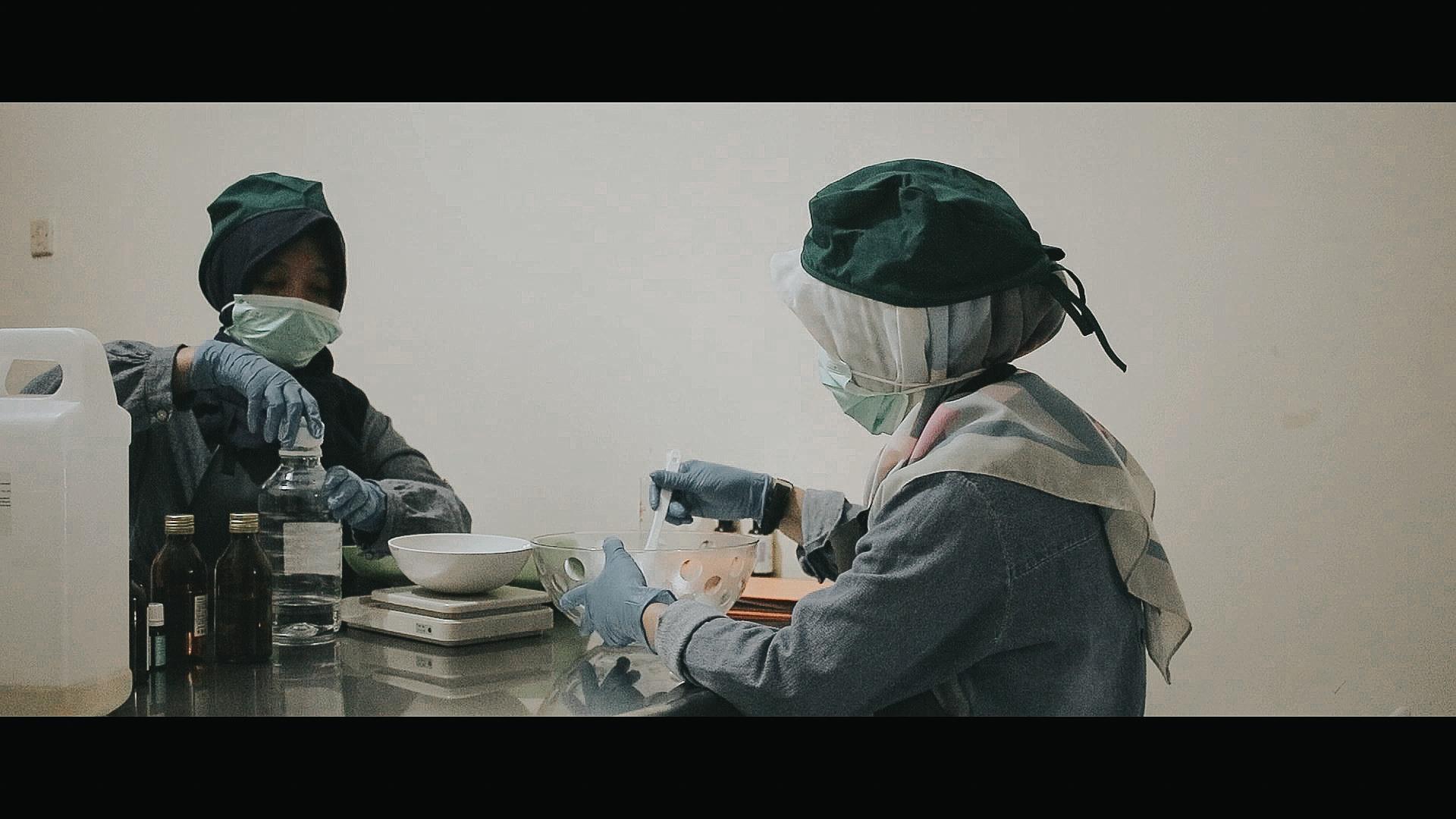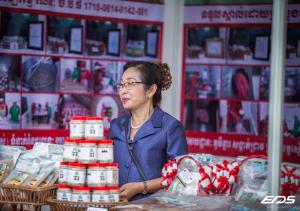Fresh air: the one thing we can rely on to invigorate us and keep us healthy. Yet in some parts of the world, the air outside is anything but fresh. Thick with city smog, quite apart from the smoke from forest fires that engulfs the region annually, parents in Jakarta, Indonesia, are well-advised to keep their children indoors.
But what fewer people know is that the air inside our homes is often similarly polluted – and sometimes up to five times worse. Not from waste gases of cars and fires, but from chemicals in the household products we use. From cleaning fluids to air fresheners, we readily open our homes and our lungs to these compounds on a daily basis.
Reading this in a US journal in 2011, Olva and her friend Agustina were shocked. They decided to switch to natural household products to reduce this impact on their families. But in Indonesia at that time, natural cleaning products had to be imported from overseas and carried an exorbitant price tag. Olva and Agustina recognized a gap in the market for safe, affordable natural cleaning products, that would benefit not only their families but the rest of the community.
A long research and development phase finally saw the birth of their company, Botanina, in 2014. The early stages were financed from personal savings, and with a turnover of around $25,000 a month, they are now able to reinvest the profit in developing the business. While the primary focus of Botanina has always been organic home care products, they have expanded their range to include other natural products. Their catalogue now includes personal care, health care, aromatherapy and a special line of products for under-7s called Bota Tiny. At one stage they made skincare products, but the licensing was complicated and they dropped this from their range in 2017.
The company now has a staff-base of 20, comprising 16 employees and 4 freelance workers, with production subcontracted out to factory partners. Olva herself leads marketing and sales, while her business partner is in charge of development, production and operations. The staff is 80% women, and the company takes a family-friendly approach to their work. Staff are welcome to bring their children to the office, provided there are no meetings scheduled that day and provided the team is on-track with its work-plan. “That might be why we have so many women employed here. Either that, or they felt connected to the household aspect of our company!” Olva laughs.
One of the challenges small businesses face is the phase of growth where they need access to specialist skills but can’t justify a full-time employee. At Botanina, an example of this is in the field of HR, which was initially handled by Olva and her partner. As the business grew, it became clear that they needed additional support. They raised the question at a management-training event provided by a business incubator in Jakarta, where it was suggested that they look for a freelance HR. This proved a good solution for Botanina, and Olva is grateful to be able to turn to the mentors from that incubator for ongoing advice.
Finding herself taking the reins on the finance side of the business, Olva shudders when she remembers the early days. “Marketing is something I understand; business finance is something else entirely. I had books but never read them because I was certain I wouldn’t understand it!” she recalls. Having managed the accounting manually for the first two years, Olva was relieved to switch to digital. The business now embraces a range of digital technologies to facilitate management, including using Jurnal App for budgeting and Talenta for their staff timesheets, and looking to integrate marketing apps in the future.
The benefit of their foundation of technology has been felt during the Covid pandemic. During lockdown, staff have been able to track their working hours online, and keep connected through Zoom while working from home. Now that the city is no longer on lockdown, Botanina’s family-first approach has also been appreciated by the staff, many of which bring their children to work as schools are still closed. The business itself has not been too adversely affected by the outbreak so far: in fact, the lockdown saw a threefold increase in online sales, and online events such as live Instagram have helped spread awareness of the company.
Whilst cautiously monitoring Botanina’s success as the country adapts to the “new normal”, Olva and Agustina are determined to keep pushing the business forwards. They are preparing for rebranding this year, with the intention of broadening their market and expanding into new areas. So far, Botanina has not had to secure loans or investors, but with these ambitious plans in the pipeline, she says they will have to open up to investors next year. “We’ve avoided having investors because we don’t know enough about it – this is our business and we don’t want to get caught out,” she explains.
Investment is not the only area Olva feels they need to upskill: she wants to make sure their sales strategy keeps up with the ever-changing market. “There are a lot of courses available online: Coursera is my go-to. You get the benefit of flexibility by learning online, but it is unidirectional, you miss out on discussing your particular case with people. Either way, the key is making sure the learning translates to execution. It’s no use me doing the course if I can’t then transfer that knowledge to the staff who does that job on a daily basis,” she explains. “Our principle is that we are happy to facilitate training for our staff, but in return they have to share that knowledge across our staff base in a way that really benefits Botanina.”
Almost half the small and medium enterprises (SME) in Indonesia are female-owned, yet there is still a general assumption that women are too emotional to be good at business. For Olva, balancing dual roles of businesswoman and mother is certainly not an easy task. However, her family is supportive and she and her husband are equals when it comes to household chores. Botanina has become a strong example of what can be achieved when women invest their energy in developing their business and achieving their goals – too focused to listen to the voices telling them they can’t.









